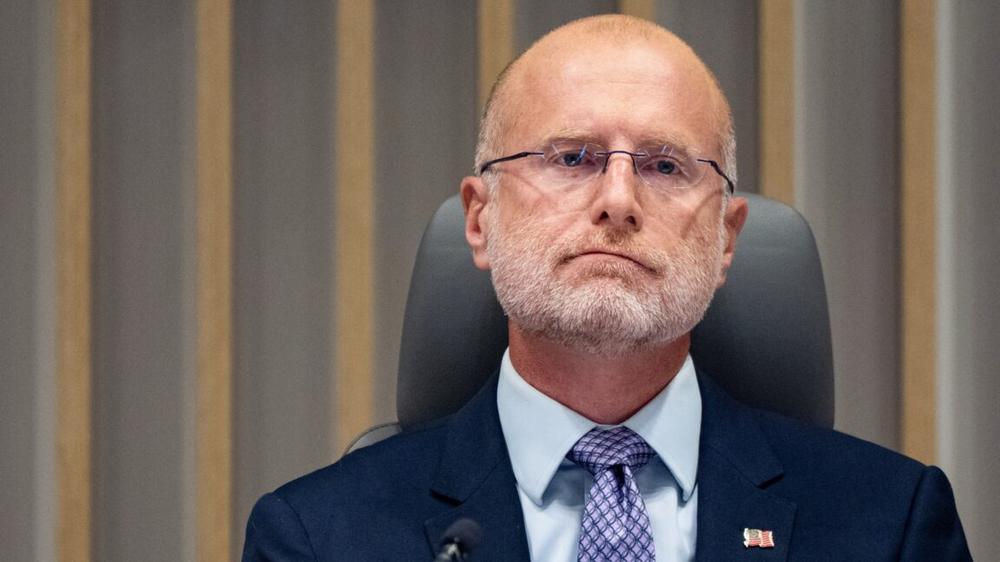The Federal Communications Commission voted yesterday to raise the maximum prices that prison and jail phone services can charge inmates and their families.
The 2–1 vote with Republicans voting to raise the limits came with a dissent from Democrat Anna Gomez, who said the new rates will be “almost double in some facilities.” A new inflation factor will allow rates to rise further.
“The FCC once again is going above and beyond to address the unsubstantiated needs of monopoly providers to squeeze every penny possible from families that want to stay in touch with their loved ones,” Gomez said at the FCC meeting. “Throughout this order, the FCC chooses to reward corporations with money taken from vulnerable families.”
A previous FCC action in June 2025 delayed implementation of new rate caps until at least 2027. The order approved yesterday raises prices by changing the FCC’s methodology for calculating rate caps, for example by including more types of safety and security expenses. The FCC also voted to allow an additional charge of $0.02 per minute “to account for correctional facilities’ expenses.”
FCC Chairman Brendan Carr said the new rates “ensure providers keep these vital services running safely and securely.” He said that previous FCC decisions have been “stayed or otherwise invalidated” by court decisions, creating an “endless cycle of uncertainty.” The FCC is trying to set rates that are “fair and legally sustainable,” he said.
Lower prices allegedly had “unintended consequences”
Rules adopted in 2024 under a Democratic majority “resulted in serious unintended consequences,” Carr said. “For example, by limiting how facilities could recover safety and security costs, some prisons or jails were forced to scale back or even stop offering calling services altogether… today’s actions seek to correct course.”
Gomez and advocates for prisoners aren’t buying Carr’s explanation. “The Republican commissioners misrepresented the record in making bold claims that the 2024 regulations resulted in ‘serious unintended consequences,’ namely the cessation of IPCS [Incarcerated People’s Communication Services] in some facilities,” said the nonprofit group Worth Rises. “In fact, only one rural jail, notorious for human rights violations, shut down phone access in protest of the 2024 rules and has not restored it despite their delay. These misrepresentations undermine the sincerity of the chair’s claim that today’s rules seek to improve communication access for incarcerated people and their loved ones.”
At yesterday’s meeting, the FCC separately proposed to eliminate a rule that requires Internet providers to itemize various fees in broadband price labels that must be made available to consumers. Public comment will be taken before a final decision. We described that proposal in an October 8 article.
“Under the cover of a shutdown with limited staff, a confused public, and an overloaded agenda, the FCC pushed to pass the most anti-consumer items it has approved yet,” Gomez said yesterday.
New inflation factor to raise rates further
The phone provider NCIC Correctional Services filed a petition asking the FCC to change its 2024 rate-cap order, claiming that the limits were “below the cost of providing service for most IPCS providers” and “unsustainable.” The order was also protested by Global Tel*Link (aka ViaPath) and Securus Technologies.
Gomez said that “providers making these claims did not even bother to meet with my office to explain their position,” and did not provide data requested by the FCC. By accepting the industry claims, “the FCC today decides to reward bad behavior,” Gomez said.
FCC price caps vary based on the size of the facility. The 2024 order set a range of $0.06 to $0.12 per minute for audio calls, down from the previous range of $0.14 to $0.21 per minute. The 2024 order adopted video call rate caps for the first time, setting rates from $0.11 to $0.25 per minute.
A few weeks before yesterday’s vote, the FCC released a public draft of its proposal with new voice-call caps ranging from $0.10 to $0.18 per minute, and new video call caps ranging from $0.18 to $0.41 per minute. These new limits account for changes to the method of rate-cap calculation, the $0.02 additional fee, and a new size category of “extremely small jails” that can charge the highest rates.
Gomez criticized an inflation factor of 6.7 percent that she said was added in the “11th hour.” The final version of the order approved at yesterday’s meeting hasn’t been released publicly yet. The inflation “factor will be adopted without being given notice to the public that it was being considered… or evidence that it’s necessary,” Gomez said.
Advocates attended the meeting holding signs of protest. Afterward, the United Church of Christ Media Justice Ministry said that “the most dramatic and unwelcome news at the meeting was the announcement that, in the week before the vote and outside of the public eye, the chair’s office added an inflation factor to the rates adopted in today’s vote. The inflation factor will increase rates above the levels announced earlier this month, and will continue to increase rates going forward.”
The inflation factor was apparently added after an October 21 request from Securus.
Inmates, families charged for more security costs
The FCC’s new rates let providers recoup costs for law enforcement support services, communications recording services, and communication monitoring services. Gomez said these categories include expenses for processing search warrants and Freedom of Information Act requests; storing recorded communications; transcribing recordings and converting them into digital formats to support investigations and litigation; and communication monitoring to aid investigations.
“None of these functions serves to facilitate the actual provision of IPCS,” Gomez said. Gomez said she is not arguing against the provision of safety and security services, but said families should not be charged for costs not related to the provision of calling services.
The new $0.02 charge allowed by the FCC is based on a 2015 survey by the National Sheriffs’ Association. Gomez said the 10-year-old survey only accounted for jails, not prisons, but the FCC is allowing the charge for both types of correctional facilities.
A Worth Rises analysis said that 76 percent “of prison systems would already be compliant with the 2024 rate cap” that was previously delayed until 2027. Gomez cited the figure while arguing that prisons and jails are able to comply despite the complaints about caps being too low.
The FCC’s new rates are described as “interim” and would eventually be replaced. Gomez called it “mind-boggling” that the FCC said it lacks sufficient data to make permanent decisions on rate caps, but “nonetheless decides to err on the side of giving the monopoly companies that have provided the supposedly insufficient data everything they have asked for and more.”
The FCC also recently proposed rules to let local and state correctional authorities jam signals from contraband cellphones.

 Nintendo’s Palworld lawsuit may be in trouble after Japan rejects Pokemon creature-capture patent
Nintendo’s Palworld lawsuit may be in trouble after Japan rejects Pokemon creature-capture patent